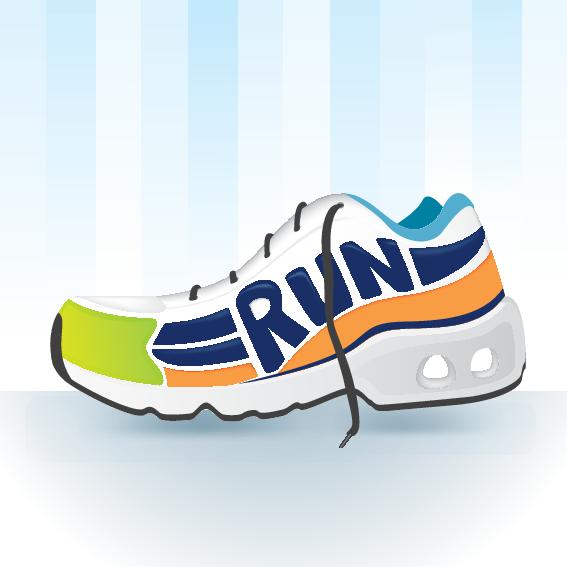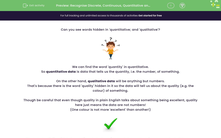Can you see words hidden in 'quantitative; and 'qualitative'?

We can find the word 'quantity' in quantitative.
So quantitative data is data that tells us the quantity, i.e. the number, of something.
On the other hand, qualitative data will be anything but numbers.
That's because there is the word 'quality' hidden in it so the data will tell us about the quality (e.g. the colour) of something.
Though be careful that even though quality in plain English talks about something being excellent, quality here just means the data are not numbers!
(One colour is not more 'excellent' than another!)
.jpg)
We can also distinguish between discrete and continuous data - and again, we can tell what they are from the name!
Continuous data is data where there is a continuity to the variable we are measuring, i.e. it can take on any value within a specified range!
For example, students' times to run 100 m would be an example of continuous data.
It could be 14.27 s or 18.91 s - any kind of number!

On the other hand, discrete data can only take on specific values.
For example, the number of siblings or shoe sizes are both discrete as you can't have a third of a sibling or shoe size 5.178!

Ready for some questions?








